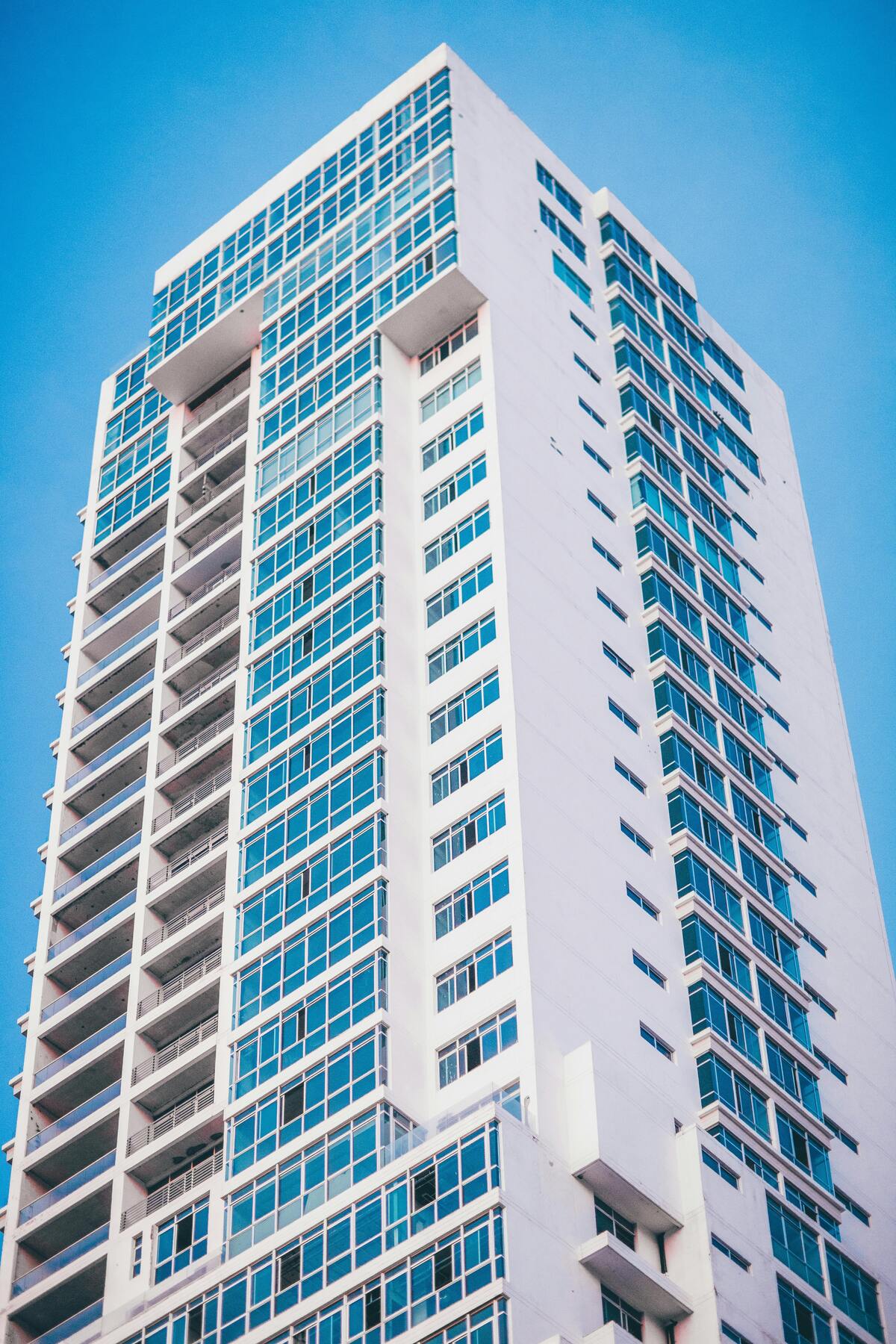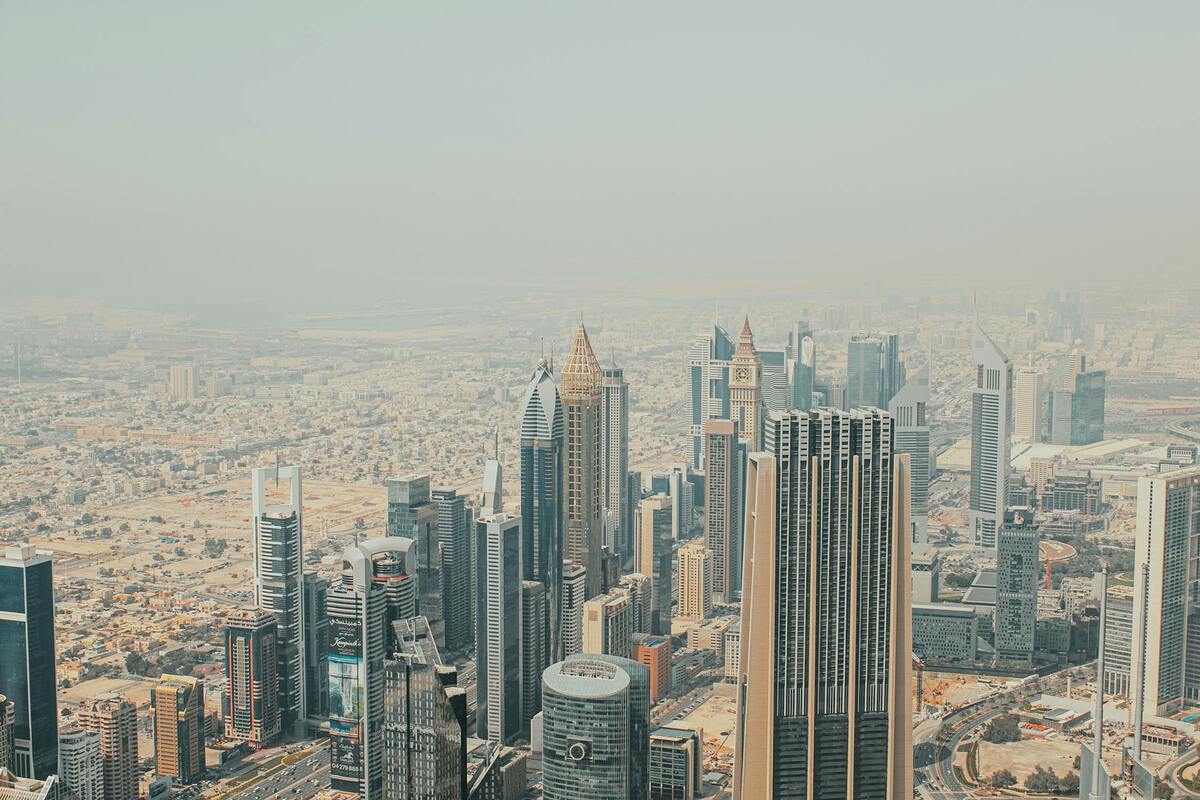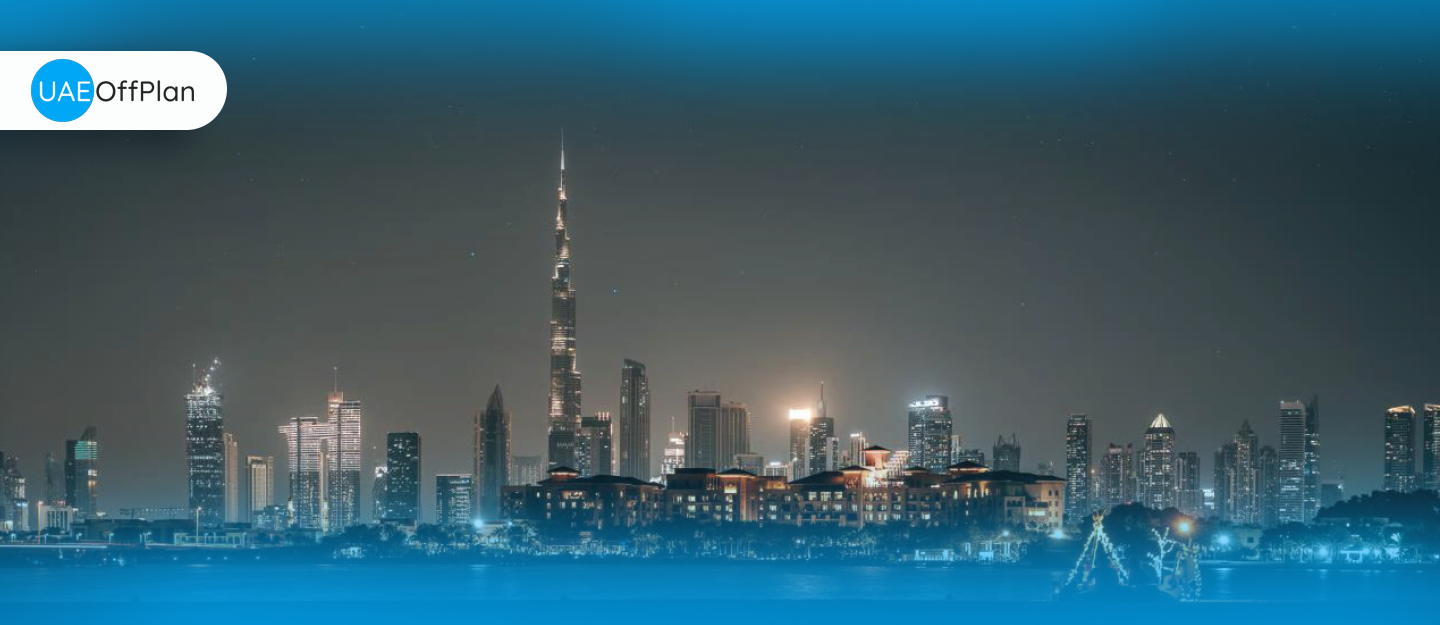
Buying property in Dubai has now become more than just a luxury dream; it now appeals more as an opportunity for expats and first-time investors. And it's not hard to see why. Of course, with no property tax, high rental returns, and a market that welcomes even foreign buyers with full ownership rights, investing in Dubai real estate is one of the most attractive choices worldwide.
But if you're new to the process, understanding the process of buying a property in Dubai is crucial, especially if you’re navigating it for the first time. It's normal to feel a little lost. What are freehold areas? Can non-residents buy? What are the real costs involved?
Therefore, this guide is here to simplify every step that is involved in the process. So, if you are planning to live in Dubai or invest from abroad, and even if you just want to explore this space, this is the place where you will find clear answers to all of your questions. That includes the legal steps, best areas to buy property with expected returns, and more.
So let’s break it down, step by step. But before we get into the how, let’s explore the why. Why are so many foreigners setting their sights on Dubai in the first place?
Why Should Expats & Foreigners Consider Buying Property in Dubai?
Even though Dubai offers you a dream lifestyle, it's more than a stopover city. This is where people from all over the world choose to plant roots and build wealth because it comes with a quality of life that is hard to match anywhere else. More people are now considering Dubai property investment as a long-term wealth strategy. And for the expats and first-time investors who want to buy property here, the good news is that it is not just possible, it's practical. and in almost every case, profitable.
1. 100% Foreign Ownership? Yes, It’s Real.
Let’s clear one thing up: Yes, foreigners can buy property in Dubai. In fact, the city has designated freehold zones where non-UAE nationals can own property outright. From modern apartments in Business Bay to waterfront villas in Dubai Marina, these areas offer full ownership with no need for a local sponsor.
2. It’s Not Just Real Estate: It’s a Lifestyle
When you buy in Dubai, you’re buying into more than just square footage. You’re stepping into a lifestyle that is clean, safe streets, iconic skylines, world-class restaurants, futuristic transport systems, and multicultural neighborhoods. So, if you are with your family looking for stability, or a solo investor seeking returns, you will find something that fits your plans in this vast Dubai real estate market.
3. Long-Term Residency Options
One of the most attractive aspects of buying property in Dubai is that it can open doors to long-term residency. With visa-linked property investment schemes, you may be eligible for renewable residence visas, allowing you to make Dubai your second or your first home, truly. This accessibility has made Dubai investment real estate popular among non-resident investors.
4. Tax-Free Returns, Global Appeal
There’s a reason why investors worldwide are eyeing Dubai. The real estate market offers tax-free rental yields, high return on investment (ROI) potential, and steady capital appreciation in prime areas. If you're exploring investment property in Dubai, the city’s consistent ROI can make it a strong contender. Compared to other global cities, Dubai gives you more value per square foot and fewer headaches when it comes to tax and ownership laws
That’s exactly why so many choose to invest in Dubai real estate today.
Now that we’ve covered the big-picture benefits, let’s zoom in on the map and look at the areas that are drawing buyers in and why.
Popular Areas to Buy Property in Dubai (with Buyer Profiles)
Dubai is a city of micro-worlds. Each area has its own personality, pace, and property style. So, if you are the one who wants to enjoy skyline views, or just live by the beach having suburban comfort along, you will always find a community that follows your lifestyle and even investment goals.
If you’re wondering where to invest in Dubai, this section will help you narrow it down. Let’s break it down by popular areas and who they’re best suited for:
1. Downtown Dubai: For City Lovers & Luxury Seekers
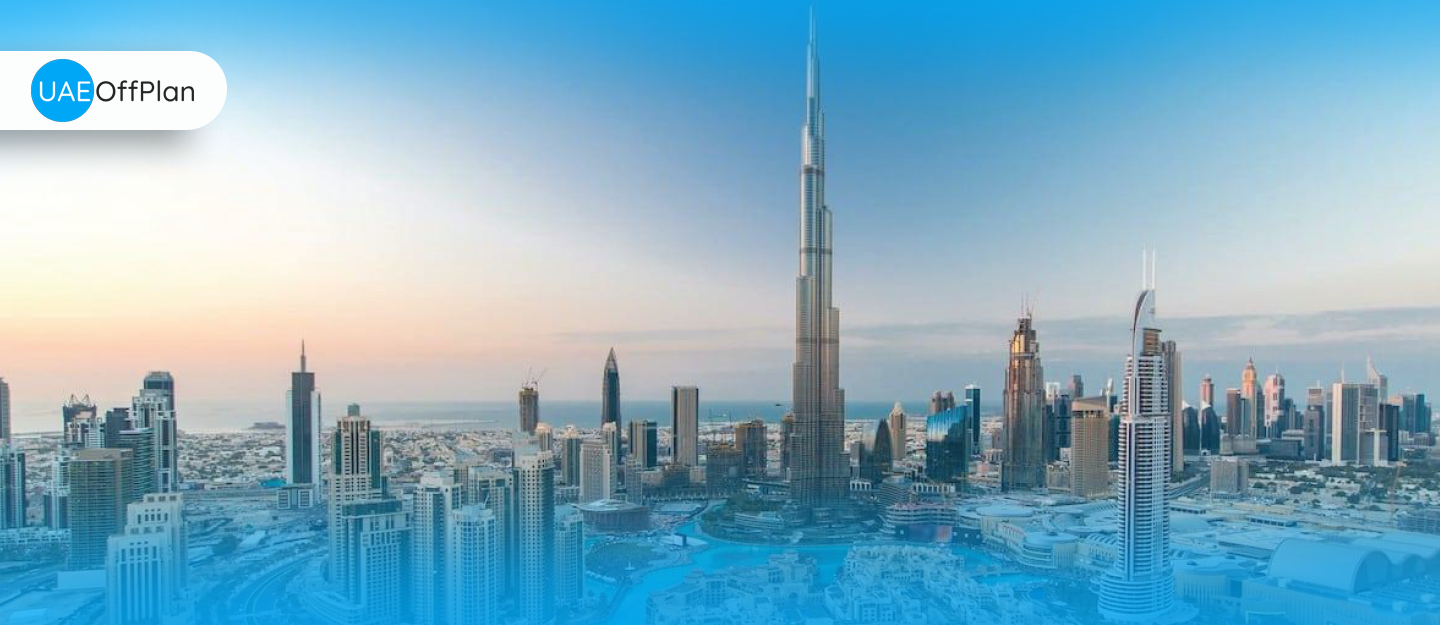
If you're drawn to city lights, global landmarks, and five-star surroundings, Downtown Dubai is hard to beat. Think of Burj Khalifa views, Dubai Mall weekends, and elegant high-rise apartments. Do you want to live at the center of everything, being a professional, an executive, or an expat? It can be the next ideal spot for you, including investors who are seeking premium rental returns.
- Property Types: Luxury apartments, Penthouses.
- Buyer Type: High-income professionals, international investors, lifestyle buyers.
2. Dubai Marina: For Waterfront Living & Young Professionals
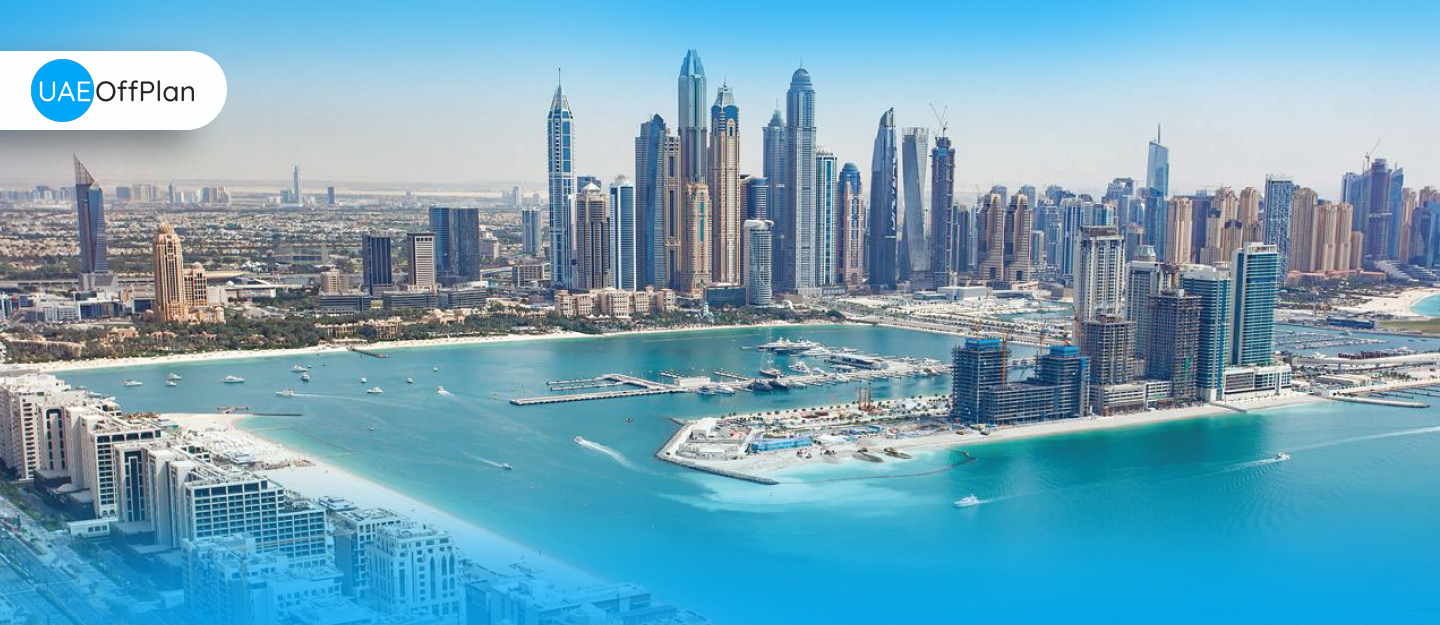
Dubai Marina blends high-rise glamour with a relaxed, coastal vibe. Cafés line the promenade, yachts drift in the marina, and the beach is never far. It’s popular among young expats, digital nomads, and investors looking for high rental demand in a tourist-favoured hotspot.
- Property Types: Apartments, serviced hotel residences.
- Buyer Type: First-time investors, young couples, Airbnb landlords.
3. Arabian Ranches: For Families Who Crave Space
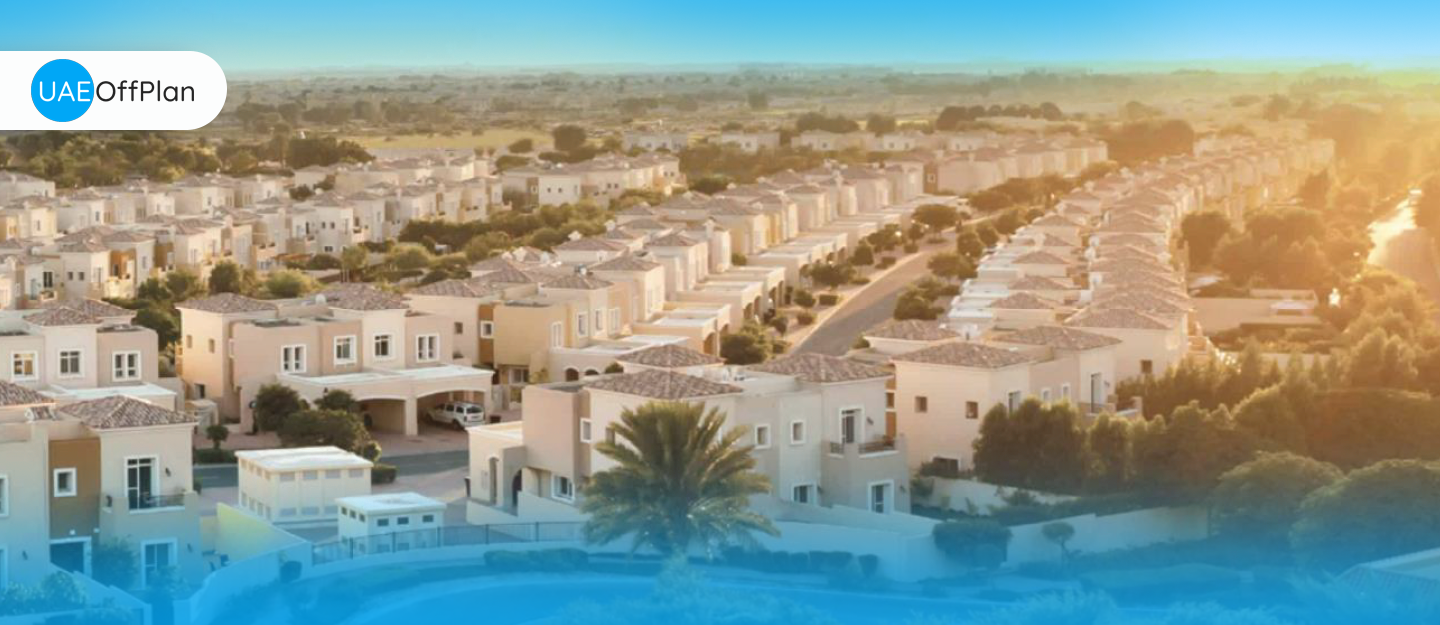
Prefer peace, privacy, and green surroundings? Arabian Ranches offers gated villa communities with landscaped parks, schools, and a calm suburban pace. It’s a favourite for families relocating long-term or investors targeting tenants who need extra room.
- Property types: Villas, townhouses.
- Buyer Type: Families, long-term expats, capital appreciation investors.
4. Palm Jumeirah: For the Ultimate in Prestige
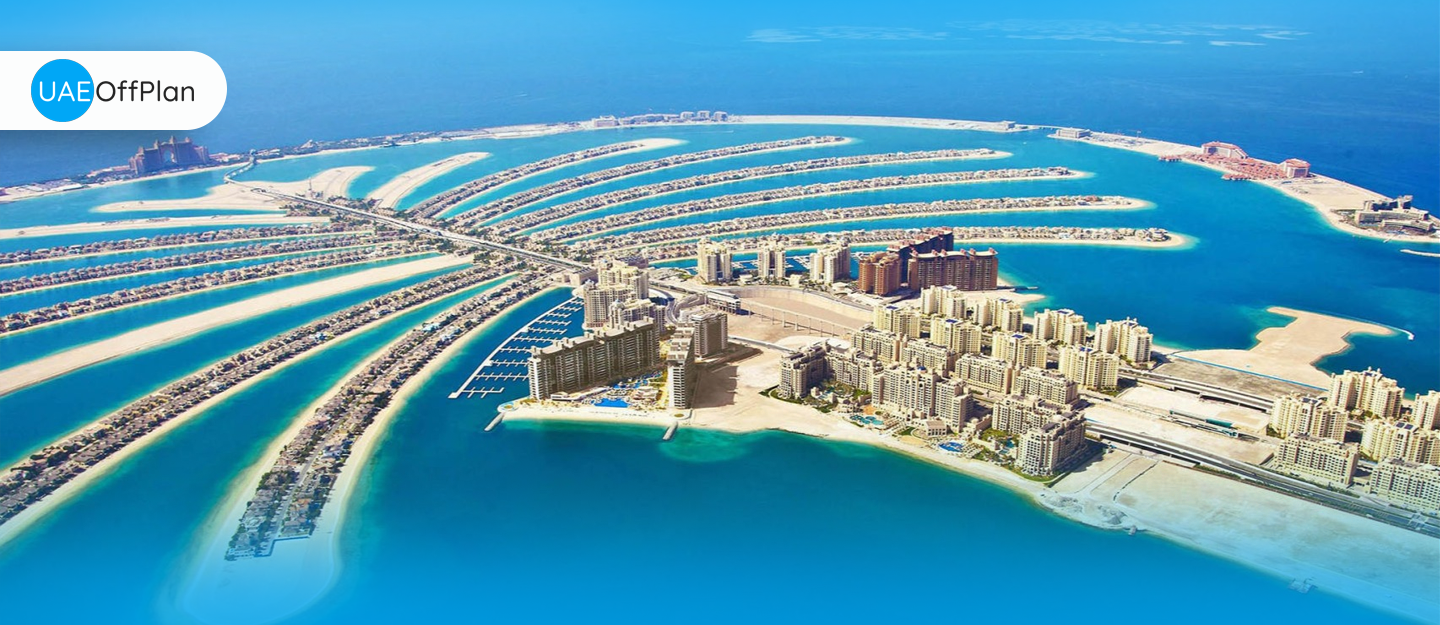
There’s beachfront living, and then there’s Palm Jumeirah. This iconic palm-shaped island offers beachfront mansions, luxurious apartments, and views that sell themselves. If you're seeking exclusivity and high-end returns, this is where Dubai gets ultra-prime.
5. Business Bay: For Investors & Young Buyers Eyeing Growth
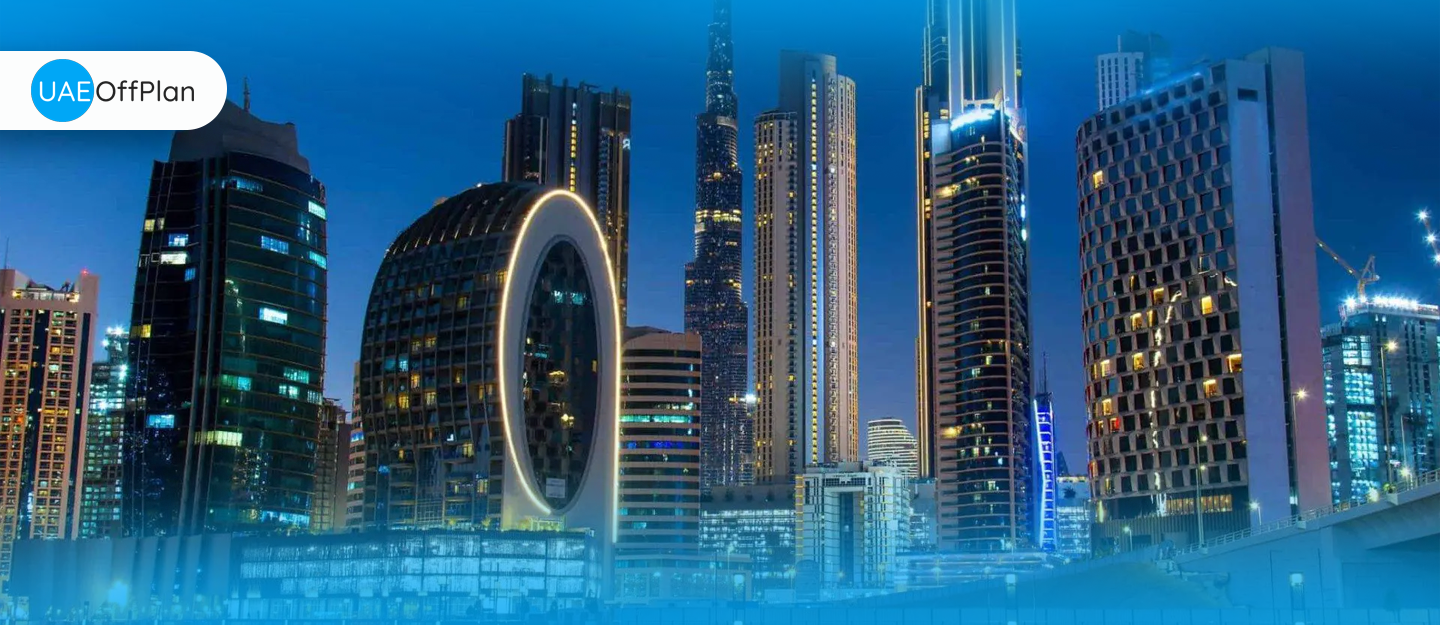
Business Bay has far exceeded our expectations and is often regarded as one of the best property investment in Dubai due to its ROI and central location. You will find it close to downtown but slightly more affordable as it is full of off-plan projects and modern towers, and it's fast-paced and ever-evolving. Young professionals and entry-level investors love its centrality and ROI potential.
- Property Types: Apartments, studios, new launches.
- Buyer Type: First-time buyers, ROI-focused investors, professionals.
Every buyer is different, and so is every Dubai neighborhood. The beauty of this city is that you don’t need to fit a mould. Whether you want to live, rent, or simply hold a property as an appreciating asset, Dubai has an area that aligns with your vision.
Once you’ve figured out your ideal location, the next big question is, what kind of property suits your needs and budget best?
What Kind of Properties Can You Buy in Dubai?
Looking for a place to buy property in Dubai? You have got plenty of options. Tons, actually. Some people want a high-rise apartment near the action, others dream of quiet villas with a yard and a pool. Whatever your thing is, budget, lifestyle, or investment plan. There will always be the best property to buy in Dubai that fits.
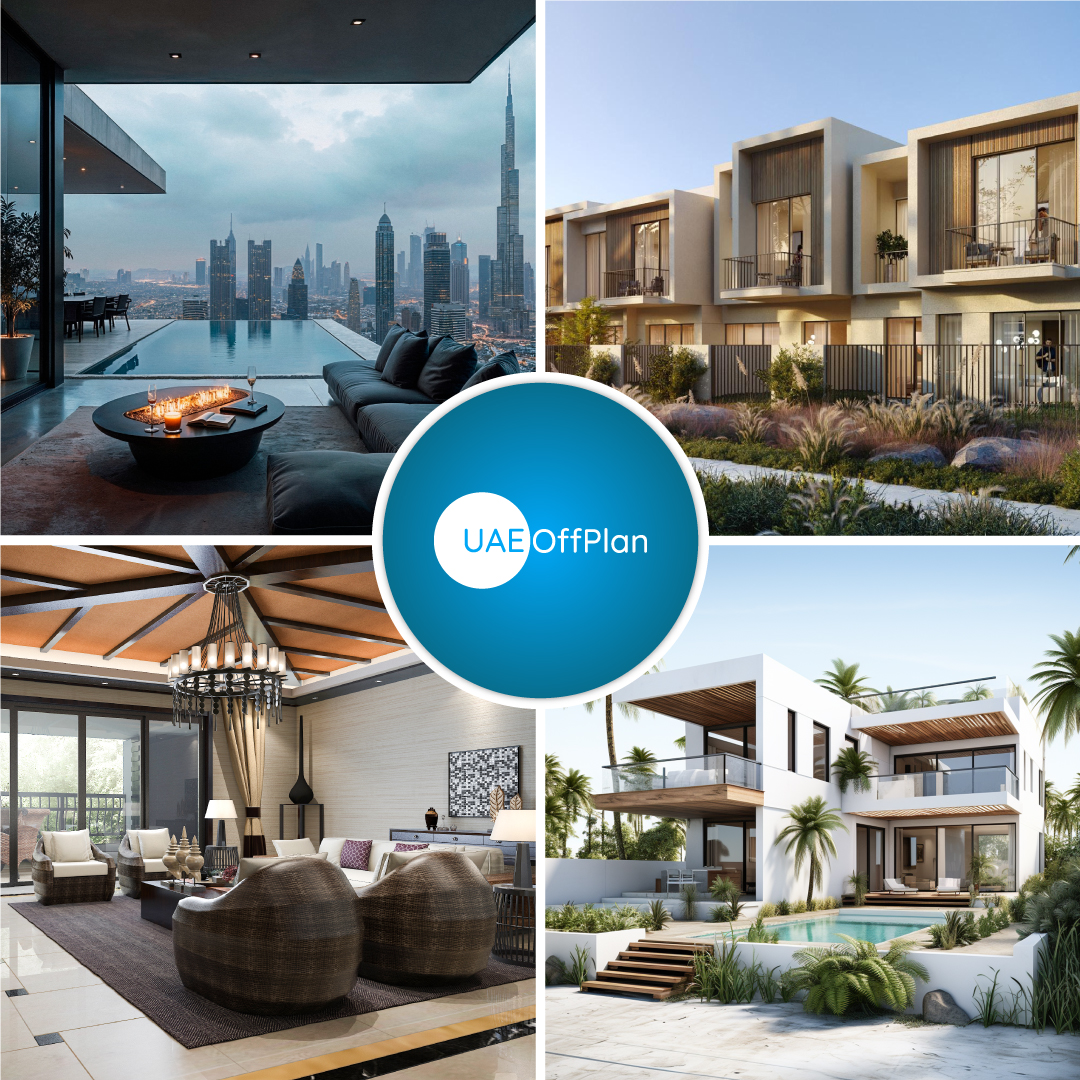
1. Apartments
Apartments are everywhere in Dubai, and by far, the most chosen type of property. They’re super popular, especially with newcomers and folks buying for the first time. You’ll see them in towers all across Downtown, JVC, Marina, Business Bay, basically, pick a map spot. So, if you want to buy a house in Dubai, or an apartment, there are all sorts.
Studios, 1-bed, 2-bed, even those huge penthouses that feel like a hotel suite. Most of these buildings throw in extras like pools, gyms, concierge stuff, and your own parking spot. That makes them easy to rent out, too, which is a bonus if you're looking to earn on the side.
2. Villas & Townhouses
Need more space? Like, an actual breathing room? Villas or townhouses might be more of your type. These are not just big houses; they’re in gated communities with parks, schools, shopping, and people walking their dogs.
Places like DAMAC Hills, Arabian Ranches, and Dubai Hills are well-known for this kind of vibe. You get your own garden here, maybe a private pool, and it feels like a proper neighborhood, not just a building. Works well for families or anyone who wants peace and quiet without leaving the city.
3. Hotel Apartments & Serviced Units
So, maybe you are the one who does not like to manage stuff. Do you want something that kinda takes care of itself? Hotel apartments are made for that. They come fully furnished, professionally handled, and are usually in tourist hotspots like JBR, Downtown, or Palm Jumeirah.
You can use them yourself when you are in town, and rent them out the rest of the time. It’s a solid setup if you want short-term income without being on call for every little maintenance issue.
4. Off-Plan Projects
Buying something that’s still under construction might sound like a gamble, but in Dubai? It’s actually pretty normal. Off-plan units are especially popular among those focused on Dubai investment properties for future gains. You get lower prices and payment plans that don’t drain you all at once.
Big names like Emaar, Sobha, and DAMAC are always having new launches. If you pick the right project and hang on till it's built, there’s a good chance the value goes up by the time you get the keys. Patience pays here literally.
5. Commercial Spaces
Looking to open a business or just want to invest in shops or offices? That’s totally doable, too. Areas like Business Bay and JLT have tons of commercial units from small stores to entire floors.
With Dubai’s no-income-tax setup and international crowd, it’s not a bad move at all. You could run your own thing or rent the place out. Either way, there’s room to grow.
So... What’s the Move?
Honestly? This depends on what you are after. Need a place to live? Want something that earns on the side? Or just looking to park your money in real estate instead of letting it sit?
Dubai’s market has a bit of everything: city buzz, beachfront calm, family suburbs, and tourist-friendly zones. You just have to figure out what clicks for you, and go from there. There’s no shortage of property to buy in Dubai, but choosing the right one depends on your goals.
But buying a home isn’t just about what it looks like; it’s also about what you legally own. That’s where understanding freehold vs leasehold becomes crucial.
Freehold vs Leasehold in Dubai
When buying property in Dubai, one of the first things you’ll need to figure out is the type of ownership you're getting, and that usually comes down totwo terms: freehold and leasehold. The difference between them can shape everything from your rights as an owner to your long-term investment goals.
1. What Does Freehold Mean in Dubai?
Buying a freehold property means you're the full owner, not just of the apartment or villa, but also of the land it’s built on. There’s no time limit on your ownership, and you’re free to sell, lease, upgrade, or even pass it down to your heirs. Many of Dubai’s prime areas like Downtown Dubai, Dubai Marina, Palm Jumeirah, JVC, and Business Bay offer freehold properties, and that’s part of what makes them so popular with expats and investors.
Freehold ownership gives you the most flexibility. It’s ideal for those who want full control over their assets and plan to hold them for the long haul. Therefore, many buyers prefer freehold due to its long-term control, especially when making a property investment in Dubai.
2. What Is Leasehold Property?
In a leasehold setup, you don’t own the property forever. Instead, you are leasing it for a fixed term, often 30, 50, or 99 years, from the landowner, called the freeholder. You can still live in the property, rent it out, or even sell your lease to someone else. But at the end of the lease, ownership goes back to the freeholder unless it’s renewed.
Leasehold homes are more common in older areas like Deira, Al Nahda, and parts of Bur Dubai. They’re usually priced lower than freehold properties, which can make them attractive for end-users or first-time buyers who aren’t planning to keep the property long-term.
Which One’s Right for You?
If you’re in it for the long game with goals like capital growth, inheritance planning, or rental income, freehold gives you more freedom and lasting value. But if you’re looking for a more budget-friendly option and are okay with time-bound ownership, leasehold could still be a smart choice.
Either way, knowing what you’re actually buying helps you avoid surprises and make a decision that fits your plans, not just now, but years down the line.
Once you've chosen the right property and ownership type, it’s time to walk through the actual buying process, and don’t worry, it’s simpler than it sounds.
The Buying Process: A Simple Walkthrough (Without the Jargon)
Buying property in Dubai can feel like a huge deal, especially if it’s your first time in real estate or if you are doing it outside your home country. But honestly? It’s not as complicated as it seems. Once you get an idea of what steps you will have to take, you will understand the process of buying real estate in Dubai, and the process will look much easier.
So here we will talk about how it all works:
Step 1: Figure Out What You Can Afford
The first thing you have to do is to set a budget. Not the dreamy “if I won the lottery” kind, but something realistic. Moreover, understanding how to buy a property in Dubai includes choosing between cash and a mortgage. And if you are thinking of getting a mortgage, chat with a bank or a mortgage broker. Getting pre-approved means you’ll know exactly what your spending power is before you even start browsing.
Quick Note: Expats in Dubai can usually get financing for up to 80% of the property’s value, which is not bad!
Step 2: Find a Place You Love
The fun part is property hunting, obviously. You’ll be scrolling listings, checking out neighborhoods, maybe even getting excited about a pool view. Think about what matters to you: is it return on investment? Walkability? Family-friendly parks? Compare a few options and shortlist what feels right.
Pro Tip: Investors usually chase ROI, while end-users focus more on lifestyle and community vibes.
Step 3: Make an Offer & Sign the MOU
Found “the one”? Time to make a move. The agent you are working with will help you put in an offer. If the seller agrees, both parties will then sign a Memorandum of Understanding (MOU). This is where you agree on price, terms, and timelines. Oh, and there’s a 10% deposit involved, usually held safely with the agent or broker.
Step 4: Lock Down Your Mortgage (If Needed)
If you’re going the financing route, your bank will now get to work. They will appraise the property, and if everything checks out and goes well, they will issue a final offer letter. It’s just a bit of paperwork and waiting at this stage.
Step 5: Get the NOC from the Developer
Before the deal is done, the seller has to get a No Objection Certificate (NOC) from the developer. Basically, it’s a green light saying that there are no dues left to be paid and the property is good to go
This can take anywhere from a few days to a couple of weeks, depending on the developer. And this is why it’s so important to get familiar with the full process of how to buy property in Dubai.
Step 6: Head to the DLD for the Final Transfer
Once the NOC is in, it’s showtime. You (the buyer) and the seller will have to go to the Dubai Land Department (DLD) to complete the transfer. You will pay the rest of the amount, along with DLD fees, which are 4% of the property price, and also the registration costs. After that boom, you will finally get your Title Deed right then and there.
And of course, every big decision comes with numbers. So here’s what you’ll need to budget beyond just the property price.
Costs Involved When Buying Property in Dubai
Okay, so here’s the thing: buying a property in Dubai is not just about seeing a price tag and paying that. There are a few extra costs you should know about before you take the plunge. The assuring part? Most of these fees are fixed and upfront, so it’s not like you will suddenly find yourself in a financial mess out of nowhere.
Here’s a quick breakdown:
1. Dubai Land Department (DLD) Fees: 4%
Yep, this is the big one. You will have to pay 4% of the purchase price to the Dubai Land Department when the transfer happens.
For example, if the property costs AED 1.5 million, you’ll pay AED 60,000 in DLD fees.
2. Title Deed Fee: Around AED 4,580
This is the cost of getting your Title Deed, aka the ownership document. For most properties above AED 500,000, it will likely be around AED 4,000, which also comes with a small AED 580 admin fee.
3. Agent Commission: 2%
If you are buying through an agent, they will usually take 2% of the property value. That’s their commission. Some developers might cover this for off-plan deals, but in resale cases, it's usually on the buyer.
4. NOC Fee: Anywhere from AED 500 to AED 5,000
If you're going for a mortgage, you will also need to register that with DLD. The fee is 0.25% of the loan amount, plus AED 290.
6. Valuation Fee (Only for Mortgage Buyers)
Before giving you a loan, the bank needs to value the property. This usually costs between AED 2,500 and AED 3,500, and yes, it’s on you.
7. Service Charges (Yearly Fees)
This one continues even after you buy it. Every property in Dubai has annual maintenance or “service” charges which cover stuff like cleaning, security, shared spaces, etc.
Say your apartment is 1,000 sq. ft and the charge is AED 14/sq. Ft, then that’s AED 14,000 per year.
8. Summary of Upfront Costs for Buyers
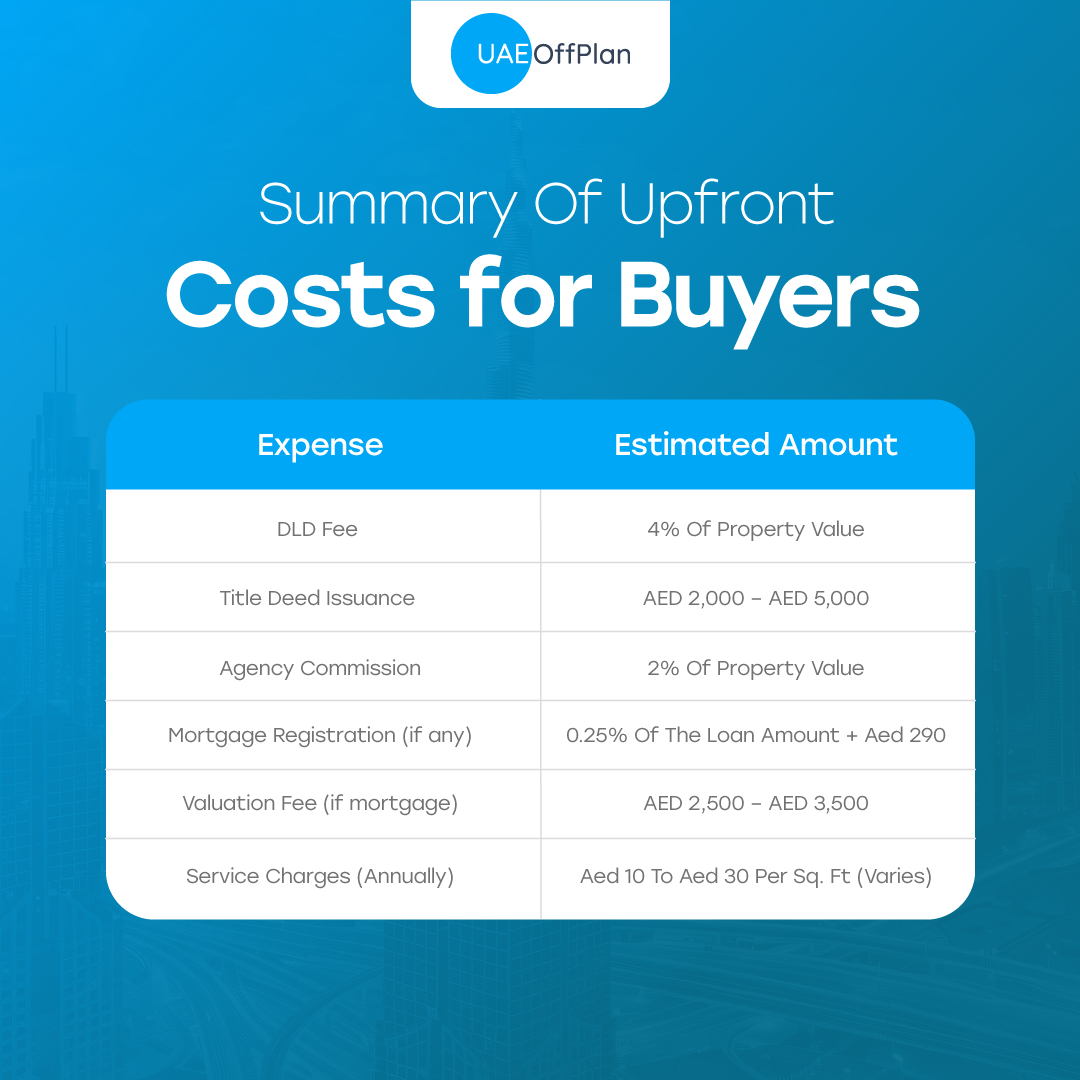
Knowing these figures upfront helps you budget more accurately and avoid last-minute stress. The low tax environment also makes property investing in Dubai more attractive than in many global cities.
So, you have seen the facts and figures, now let’s talk about what it feels like to actually take that first step into Dubai real estate.
From Interest to Investment: You're Almost Home
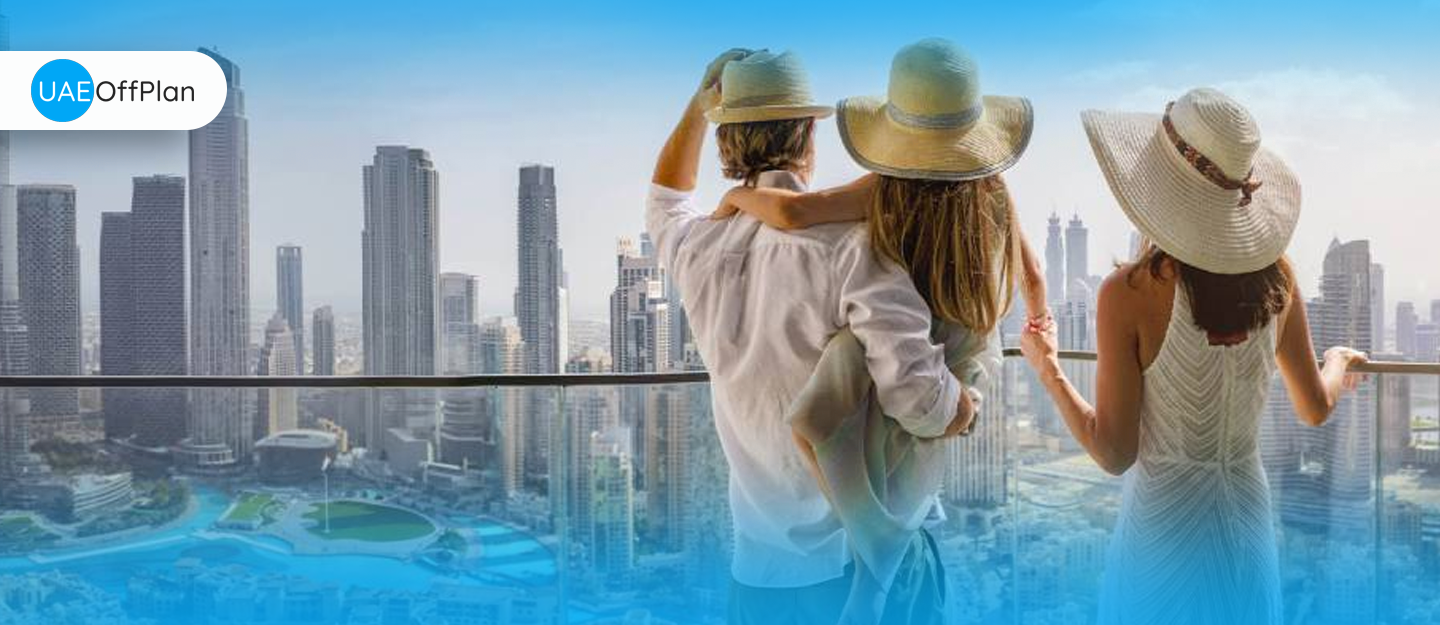
At the end of the day, buying property in Dubai isn’t just a transaction; it’s a decision to be part of something bigger. A new rhythm, a new skyline, a new lifestyle. Whether you’re investing for the future or planting roots in a place that inspires you, Dubai opens its doors wide. And the best part? You don’t have to rush. Just take that first step, and everything else will follow.










